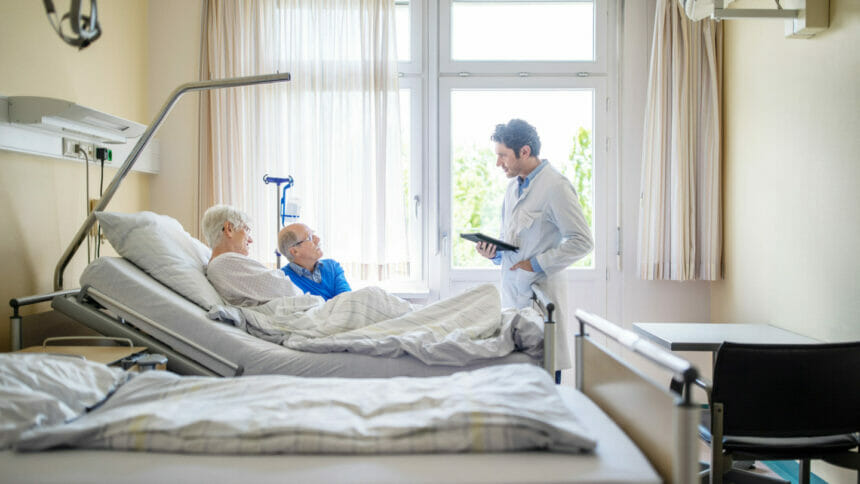
Use of antipsychotic and psychoactive drugs following surgery generally fell in various settings among those experiencing postoperative delirium, according to a study published in the Journal of the American Geriatrics Society last week.
The authors evaluated data from 4,098,431 people who were admitted to community hospitals and 2,310,529 people admitted to academic medical centers in the US between 2008 and 2018. The mean age of the people was 75, and 50.89% were female.
Researchers studied the rate of hospital days exposed to antipsychotics, antidepressants, antiepileptics, benzodiazepines, hypnotics, and selective alpha-2 receptor agonist dexmedetomidine in the postoperative period by hospital type.
Of people in intensive care units (ICUs) setting, the number of exposed days per 1,000 hospital-days went from 33 to 21 days in people at hospitals taking haloperidol and from 24 to 15 days in academic medical centers. In non-ICUs, the rate declined for haloperidol in hospitals, but not in academic medical centers.
Use of benzodiazepines fell from 261 to 136 days in hospitals and from 150 to 77 days in academic centers. It also declined in non-ICUs in both settings. Meanwhile, the use of antiepileptics and antidepressants increased, while the use of atypical antipsychotics and hypnotics varied by the hospital type.
Overall, using haloperidol and benzodiazepines after surgery went down at hospitals and academic medical centers. Those trends were at the same time as more used other psychoactive drugs.
Another study assessed the risk for in-hospital adverse events when older adults took oral haloperidol, olanzapine, quetiapine, and risperidone after major surgery. The study was published in Annals of Internal Medicine last week. That study examined data from 17,115 people over 65 who didn’t have psychiatric disorders but were prescribed an oral antipsychotic drug after major surgery. The data was collected from 2009 to 2018.
Among the four antipsychotic medicines studied, quetiapine was the most prescribed. Atypical antipsychotics and haloperidol have similar rates of in-hospital adverse clinical events in older people who have postoperative delirium and receive a low-to-moderate dose of an antipsychotic drug.




